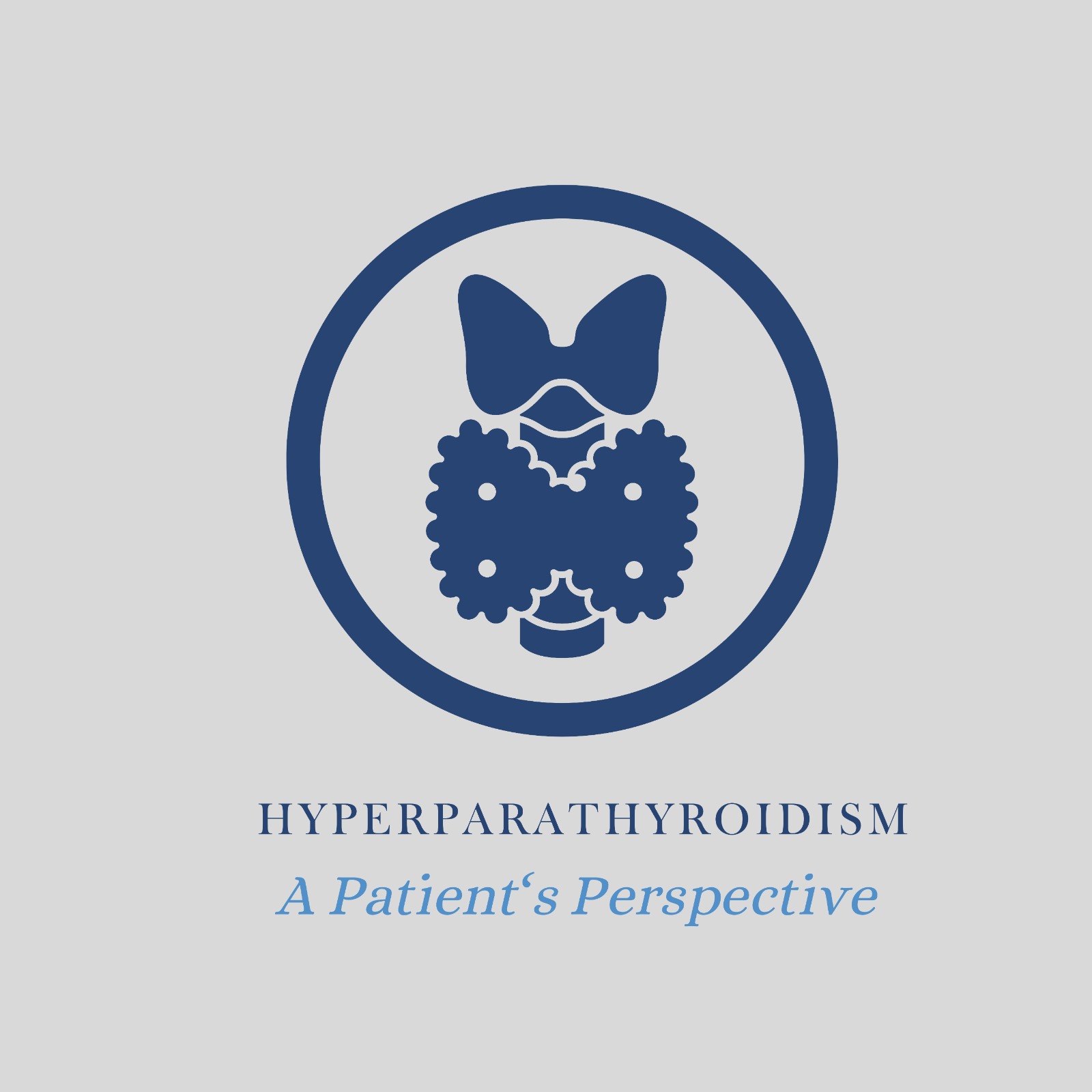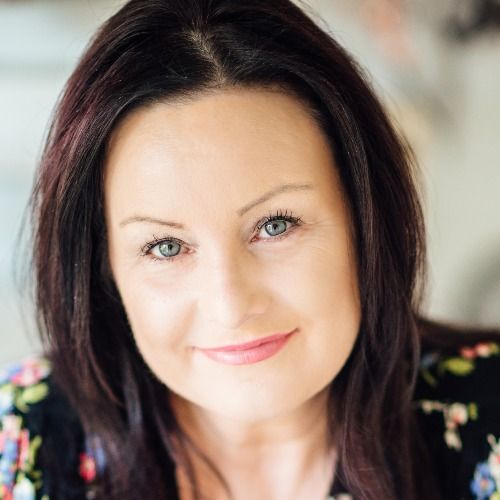Episode 8: Helpful Tips for Navigating a Diagnosis of Hyperparathyroidism
In this episode, Lisa Marie shares valuable insights and tips for navigating your way to a diagnosis of hyperparathyroidism. The importance of being prepared ahead of any appointments you may need, is also advantageous. Asking informed questions and even getting a second opinion where possible.
ABBREVIATIONS:
HPT - Hyperparathyroidism.
nHPT - Normocalcemic Hyperparathyroidism.
PTH - Parathyroid Hormone Level.
ng/L - Blood chemistry measurement.
MP - Member of Parliament - UK
CLARIFICATIONS:
Hyperplasia verses single adenoma.
Hyperplasia affects all four glands and the glands become enlarged.
A single adenoma usually a benign (non-cancerous) tumour of the gland.
RESOURCES
The information shared in this podcast has been provided by several sources. These include outcomes from personal consultations with medical professionals, my own experiences, published research by expert medical professionals, and the NHS website. Please click on the links below for more information.
Hyperparathyroidism
https://www.nhs.uk/conditions/hyperparathyroidism/
Normocalcemic Hyperparathyroidism
https://www.ncbi.nlm.nih.gov/pmc/articles/PMC7923978/
Hyperparathyroidism Support & Information - Patient to Patient Support Group
https://www.facebook.com/groups/406980976340533
NICE Guidelines
https://www.nice.org.uk/guidance/ng132
Fibromyalgia
https://www.nhs.uk/conditions/fibromyalgia/symptoms/
Menopause
https://www.nhs.uk/conditions/menopause/
https://www.newsonhealth.co.uk/
Thyroid Function
https://www.nhs.uk/conditions/underactive-thyroid-hypothyroidism/
https://www.btf-thyroid.org/what-is-thyroid-disorder
DISCLAIMER: Lisa Marie is not in any way medically trained, she is not providing medical advice, and the information that is shared is in no way a substitute for qualified medical advice. If you believe you may have this disease, then you must seek the most appropriate medical advice, this podcast aims to help you navigate your way to the right medical support and diagnosis.
Transcript
Many doctors and surgeons are still working to outdated methodology and guidelines. Often the patient isn't included in open discussions about what their medical position is. or what their options are. Variables of those disease can include normocalcemic hyperparathyroidism, normohormonal hyperparathyroidism, multigland disease, those with hyperplastic multigland disease, straightforward single adenoma extraction, and those with genetic conditions such as MEN1,
[:MEN2, four Jaw tumor syndrome.
Familial, isolated hyperparathyroidism, neonatal, severe hyperparathyroidism, and FHH. There may well be others. Many patients diagnosed with hyperparathyroidism may well have other underlying conditions such as Hashimoto's disease, Cushing's disease, diabetes, thyroid problems, fibromyalgia. They may be menopausal and many, many other possibilities where the symptoms may cross over.
And it is important to understand and know exactly what your unique health problems are and their related symptoms. First signs. For many patients in the UK and the rest of the world, they may find that things start out by feeling not quite right. Symptoms of
[:fatigue. General aches and pains. Visits to the GP may result in outcomes such as it's your age, the menopause, perimenopause and lots of other general ailments, I've experienced myself
it can take many, many years for some patients to get diagnosed and it's often by chance when testing for other conditions. to rule those conditions out markers are picked up such as high calcium
or low vitamin D. Usually the GP then, GP being general practitioner in the UK, refers to the appropriate specialist. At this stage getting fully prepared and armed with the knowledge of this disease and all its variables is a must for getting the right outcome. If you have low vitamin D and or high calcium, then
[:advocating to get your parathyroid hormone level, PTH, tested would be advantageous.
And you can request your GP, specialist, doctor, healthcare provider, to do this. Before your first appointment. Preparation is key. Arm yourself with all the information you can about this disease, including all the variables.
It is strongly recommended that you gather this information and that you read through these so that you can ask the most appropriate questions in your appointment. Family history. Make a note of your family history even if it is not related to hyperparathyroidism.
Include everything you know about your own medical history and that of any genetic factors that you may be predisposed to. Information is key. Give this to each doctor, surgeon, specialist or geneticist you may
[:see. Hand it to them in person or where possible, email it to the specialist's secretary.
Symptoms list.
As with your family history, it is extremely important to provide everyone you see with a list of your symptoms. All your symptoms and how often you are suffering and how bad they are. It may be useful to note how you're feeling about living with them daily. Again, hand this list to everyone you see or email whenever possible.
Asking questions. Politely asking questions will demonstrate to your healthcare team that you are passionate about understanding this disease and that you want to make sure that you get the very best outcome by taking your health seriously. So do not be afraid to ask involved questions such as the following.
If you are seeing a doctor or
[:an endocrinologist, are they going to refer you to a surgeon? Will they be carrying out any imaging scans and tests and if so, which ones will they be? How experienced is the radiographer in performing these scans and tests? This is key. to a successful location of a gland.
When seeing a surgeon, ask how many parathyroid surgeries do they do in a year? How many of those parathyroid surgeries are straightforward for first time surgeries? How many redo parathyroid surgeries do they perform? If you're seeing a surgeon, what is their plan? For example, will the surgeon be exploring the other glands to check them for the disease?
whilst they are operating? Will the surgeon be testing your parathyroid hormone levels or any other blood levels during surgery as in intraoperative testing? What is the plan if more glands are found to be diseased or if the levels do not drop significantly
[:during surgery?
If the surgeon does not test intraoperatively, ask why? What are all of the possibilities and What are all the options open to you? If your surgeon will only remove diseased glands and not test interoperatively, ask why. Affected glands. It may be that you have single gland disease with a single adenoma.
These cases tend to be more straightforward. However, if you have more than one gland affected, as many members do, It is important to have a plan and to be making fully informed decisions with your surgeon right from the outset. It is important to balance out the risk of post operative complications from extracting just the disease glands with the possibility of requiring a redo operation at a later date that may come with greater complications and risks.
The key to a successful
[:Hyperparathyroid outcome in the UK is to find the most experienced surgeon for your case. If at any time you are not confident with the plan or approach offered, you can and do have the right to ask for a second opinion. And in many UK members case, it can be a third or fourth and even a fifth opinion.
In any part of the world, the successful outcome of hyperparathyroidism is down to self advocacy and persistence together with finding the right expert for your particular case. This is especially important in the UK when you are navigating an already exhausted NHS National Health Service.
Getting the right outcome and diagnosis the first time around will save not only potential unnecessary suffering to the individual, but save time and money for the NHS.
[:If for any reason your doctor and or surgeon suggests any kind of genetic tests, ask why they are testing for those genetic markers and ask to be referred to a geneticist for full genetic screening to rule things out.
This may save time in the long run, especially if you have any family history of the disease. Some doctors will only test for basic genetic markers in conditions such as MEN1, and MEN2, but it's demonstrated there are a whole host of genetic markers in the genetic pool currently. There may well be more that are yet undiscovered, especially in patients with multi gland disease or hyperplasia.
Your medical information. Keeping up to date records of your blood test results, hospital appointments and medical information is key to helping you keep on top of all your health issues.
You can do this in several ways. Ask your GP for a printout of your blood
[:results. It's your information. And you're entitled to see it. This will help you see any trends and fluctuations and provide the national reference ranges for each test. Ask to be copied in on any and all correspondence that goes to your GP or onto any other medical professionals that you may be referred to.
This will give you a timeline of events and keep you across who you have seen and when. Requesting your medical records. In the UK, you have the right to access your GP records for any period of time. I have done this and now have a copy of all my medical information from my childhood years up to the present day.
There will be a time frame involved and I think for the UK, GP practices have 40 days to respond with the information, but be clear on what you require, both physical written information and any digital information they have. as with a
[:GP record, you can access your hospital records.
This will include imaging, any hospital admissions, surgery, ward notes, letters to GP and outcomes. Be clear about what you're requesting. This will you see your timeline of your health journey and can help you move forward. This can be done for each hospital trust you have been treated at.
Writing to your hospital and GP practice and MP.
One of the things that I've done recently is write to the Chief Medical Officer of my local hospital to share my journey and raise awareness of my current presentation, which currently my local hospital doesn't appear to acknowledge as they are working to older guidelines and they don't include my presentation of normocalcemic hyperparathyroidism.
I've explained my reasoning for the contact which is to help raise awareness so that patient centered care can be
[:delivered. I've also written to my GP regarding testing in plasma rather than serum and the evidence that favours the latter. If all else fails and you don't get a response, you can always raise these issues with your local MP.
But above all else, draw on the information and support available. And make sure it's the right information and support available. From a verified source.
Thank you for listening.
Please join me in Episode 9 where we discuss a post op checklist.


